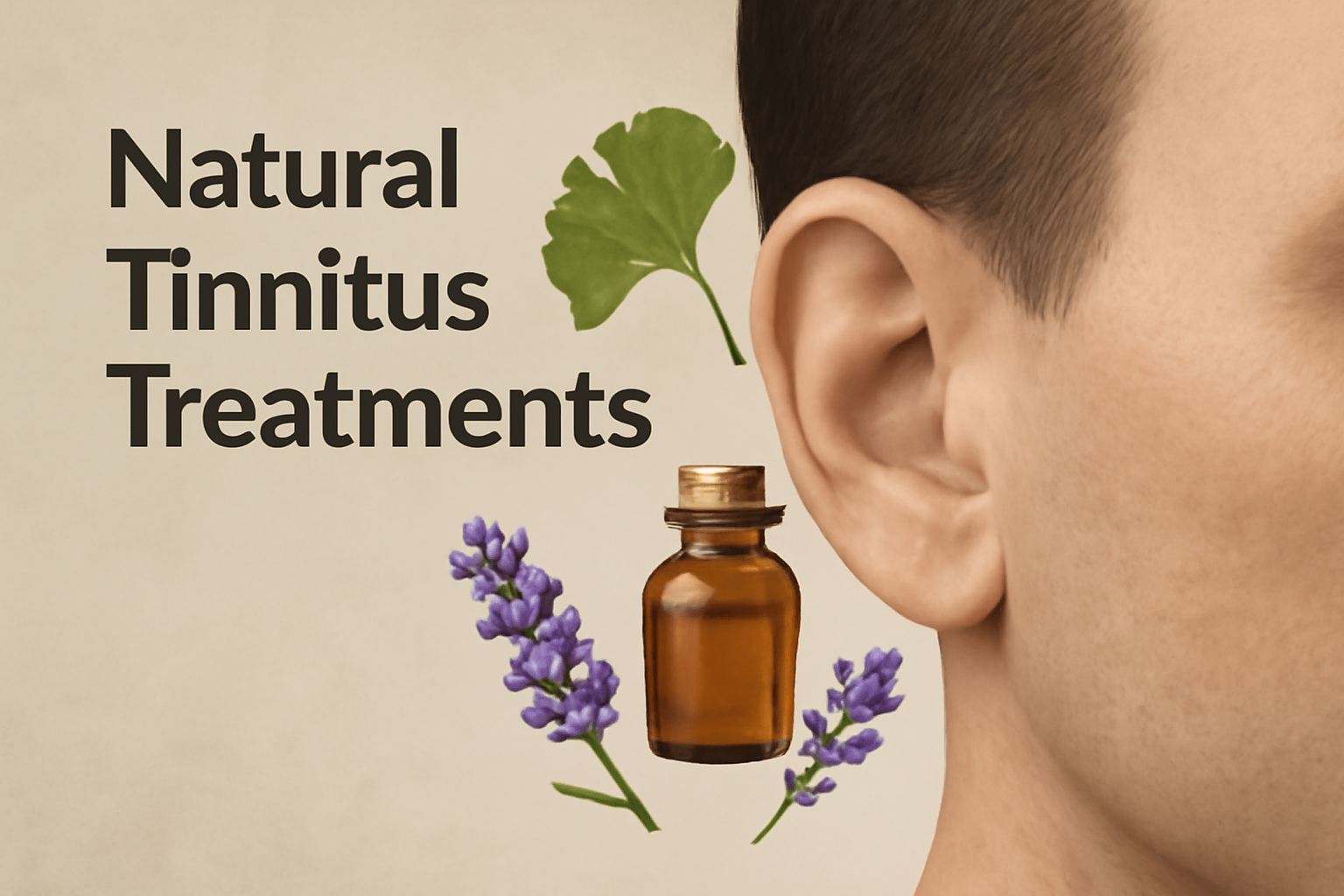Tinnitus, often described as a ringing, buzzing, or hissing sound in the ears, affects millions of people around the world. While it’s not a disease itself, tinnitus is usually a symptom of an underlying condition—such as hearing loss, stress, or ear injury. Many people seek relief beyond medication or surgery, turning instead to natural treatments. While there's no guaranteed cure, some natural methods can help reduce symptoms and improve quality of life.

1. Sound Therapy
One of the most widely used natural approaches to managing tinnitus is sound therapy. This involves using background noise to mask or distract from the ringing sound. White noise machines, soft music, or nature sounds can help make tinnitus less noticeable, especially at night or in quiet settings. Apps and sleep machines are convenient tools for this type of therapy.
2. Mindfulness and Stress Reduction
Stress and anxiety can make tinnitus worse, so learning to manage emotional responses is crucial. Mindfulness meditation, yoga, and breathing exercises can help calm the mind and reduce stress-related tinnitus flare-ups. Regular practice may not eliminate the sound, but it can help reduce the emotional impact and make it easier to cope.
3. Diet and Nutrition
Some people find that certain foods or drinks can trigger or worsen their tinnitus. Common culprits include caffeine, alcohol, salt, and sugar. On the other hand, a diet rich in antioxidants, magnesium, and vitamin B12 may support ear health and reduce symptoms. Leafy greens, fish, nuts, seeds, and whole grains are great additions to a tinnitus-friendly diet.
4. Herbal Remedies
Several herbs are believed to have potential benefits for tinnitus, though research is still ongoing. Popular choices include:
Ginkgo biloba: Often used to improve blood flow, which may benefit inner ear function.
Zinc supplements: A deficiency in zinc has been linked to tinnitus in some cases.
Garlic and onion: Natural anti-inflammatory and circulation-boosting properties.
Always consult a healthcare provider before starting any new supplements, especially if you're taking medication or have health concerns.
5. Acupuncture
Acupuncture, a practice rooted in traditional Chinese medicine, involves inserting fine needles into specific points of the body to balance energy flow. Some individuals report reduced tinnitus symptoms after regular acupuncture sessions. While results vary, it may be worth exploring with a qualified practitioner, especially when combined with other therapies.
6. Cognitive Behavioral Therapy (CBT)
Though not a “natural” remedy in the herbal or dietary sense, CBT is a non-medical, mind-based approach that has shown great success in helping people manage tinnitus. CBT helps patients reframe negative thoughts about their symptoms and develop coping strategies to reduce stress and improve sleep.
7. Regular Exercise
Moderate exercise improves blood circulation, reduces stress, and supports overall health. Even gentle activities like walking or swimming can help ease the perception of tinnitus by improving mood and promoting relaxation.
Final Thoughts
While there’s no one-size-fits-all cure for tinnitus, many people find relief through natural treatments and lifestyle changes. A combination of sound therapy, diet, stress management, and gentle movement can go a long way in helping reduce the impact of tinnitus. It’s important to stay patient, experiment safely, and consult with a healthcare provider to find the best mix of strategies for your needs.
Ref Link—>https://mysecondear.com/blogs/wissen/tinnitus-hausmittel
https://nypost.com/2025/01/15/health/why-your-ears-are-ringing-and-6-habits-making-tinnitus-worse

